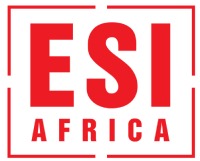Redefining Africa’s water future
Solving the water sector’s challenges requires a dramatic and collective rethink
Across Africa, water is too often framed only as crises: droughts, shortages, contamination, and failing municipalities, writes Nicolette Pombo-van Zyl, editor-in-chief of ESI Africa.
Water is the bedrock of dignity, resilience, and economic growth. Still, the truth is that solving our water challenges requires a dramatic and collective rethink of how we finance, govern, and manage this most vital resource.
As Kobie Brand of ICLEI puts it, water cannot be treated as an afterthought. Cities and municipalities carry the executive authority to set priorities and deliver services, yet they are consistently excluded from national investment strategies. When taps run dry, citizens do not phone ministers; they knock on mayors’ doors. This reality is why cooperation between local, national, and international actors is necessary.
Equally, water provision cannot be divorced from environmental stewardship. Destroyed wetlands, polluted rivers, and over-extracted aquifers do not respect political boundaries. A broken ecosystem guarantees a broken water system, and municipalities cannot carry this burden alone; nor should they.
Does money matter for a secure water future in Africa?
The Development Bank of Southern Africa (DBSA) has been frank: money is not the problem. In South Africa, there are deep financial markets, and institutional investors holding abundant capital. The obstacle is weak governance, where political interference often trumps technical expertise. Water revenues are siphoned off to subsidise other services instead of being reinvested in maintenance and upgrades.
Non-revenue water (lost through leaks, theft or poor metering) reaches 58% in some areas, a staggering figure that undermines both trust and sustainability. Ben Mokheseng of the DBSA points out that if governance were stabilised and professionals allowed to do their jobs, water losses could be halved in just over a decade. Trust is the foundation of investment.
Yet there are encouraging examples. Nairobi Water has recognised that informal settlements require more than token interventions. By elevating its department for informal areas to the same level as other regions, it has signalled that dignity for residents is non-negotiable.
Dedicated staff with community engagement skills are deployed to build trust, while partnerships with community-based organisations foster a sense of ownership. Nairobi Water’s tariffs are set at affordable rates, encouraging payment while protecting vulnerable households. This model demonstrates that communities are active partners in water provision.
Taking finance to the next level of securing water assets
Now, the financing debate must also evolve. Innovative mechanisms are emerging, including securitising Africa’s vast natural capital, developing water exchange-traded funds, or designing resilience bonds linked to ESG frameworks.
Dr Hubert Danso of Africa Investor Group argues that development must be made investable and align with social and economic dividends so private capital can be unlocked at scale. Investors will go where governance is sound, risks are managed, and returns are predictable. Africa’s water sector should be no different.
The old model of development finance institutions filling every gap must give way to attracting financially sustainable loans. That means treating water as a fragile public good in perpetual crisis, and recognising it as an investable asset class tied directly to human rights, environmental stability, and economic productivity.
The choice is stark: continue patching holes in a leaking system, or embrace a new compact where water is recognised for what it truly is – everyone’s responsibility.
Cover photo: By ESI Africa



